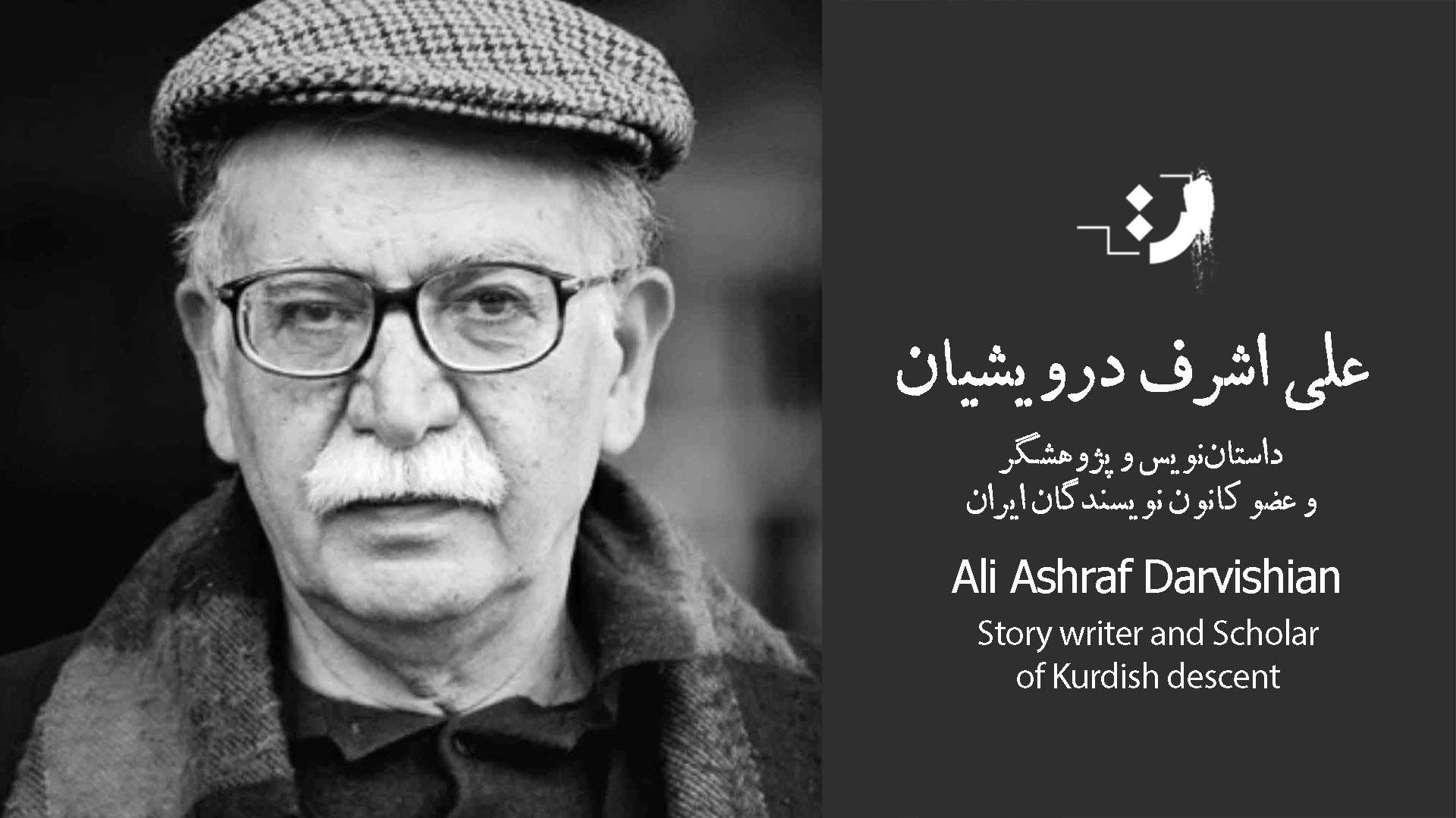Ali Ashraf Darvishian

Biography
Ali Ashraf Darvishian (1941–2017) – Iranian Writer and Social Critic
Ali Ashraf Darvishian (August 25, 1941 – October 26, 2017) was an Iranian socialist writer, researcher, and a member of the Iranian Writers’ Association. He is best known for his realistic depiction of the struggles of the working class and his criticism of social and political injustices in Iran.
Early Life and Education
Darvishian was born into a working-class Kurdish family in the Abshooran district of Kermanshah, Iran. Due to financial hardship, he started working at a young age while continuing his education. In 1958, he completed his studies at a teacher training college and later worked as a teacher in impoverished villages around Kermanshah and Gilan-e-Gharb. This experience significantly influenced his literary work.
In 1966, he moved to Tehran to study Persian literature at the University of Tehran, earning a bachelor’s degree. He later pursued a master’s degree in Educational Psychology while also studying Guidance and Counseling at Tehran’s Teachers’ College. In 1973, he married Shahnaz Darabian.
Literary Career
Darvishian was deeply influenced by Iranian authors such as Jalal Al-e Ahmad, Simin Daneshvar, Sadeq Hedayat, and Samad Behrangi, as well as international literary figures like Gabriel García Márquez, William Faulkner, and Ernest Hemingway. His works focus on the struggles of the underprivileged, reflecting the harsh realities of life in Iranian society. His first short story collection, Abshooran (1975), is a semi-autobiographical depiction of his childhood and the lives of poor families in his hometown.
He was also passionate about preserving Iranian folklore and worked on compiling an encyclopedia of Iranian legends and fairy tales. Despite restrictions on Kurdish language publications, he managed to publish some translations and dictionaries in Kurdish.
Political Activism and Imprisonment
Darvishian’s commitment to social justice led to multiple imprisonments. Under the Pahlavi regime, he was arrested in 1971 for his book Az In Velayat (From This Land) and his political activism. He was imprisoned three times between 1971 and 1979, spending nearly eight years in prison. After the 1979 Iranian Revolution, though he was not jailed, his works were censored, and some were banned.
He remained a vocal critic of censorship and continued advocating for freedom of expression. As an active member of the Iranian Writers’ Association, he played a key role in defending writers’ rights and was one of the authors of the famous statement We Are Writers, protesting government censorship.
Recognition and Later Years
In 2006, Darvishian was invited to Australia as a guest of the Iranian Centre for Democracy, where he delivered lectures on cultural and social issues. Marjane Satrapi, the Iranian-French author of Persepolis, described Darvishian as her favorite childhood writer, calling him “a kind of local Charles Dickens” and recalling attending one of his secret book signings.
Darvishian passed away on October 26, 2017, in Karaj, Iran, and was buried at Behesht-e Sakineh cemetery.
Selected Works
Abshooran (1975) – Short story collection
Salhay-e-Abri (Cloudy Years, 1997) – Novel
Farhang-e Afsanehay-e Irani (Iranian Legends and Fairy Tales Encyclopedia)
Az Nadarad Ta Darad – Short story collection
Paper Wishes (2003) – Short story
His works, often influenced by Marxist literary criticism, explore themes of class struggle, poverty, and social injustice, making him one of the most significant voices in contemporary Iranian literature.
- Birthday: August 25, 1941
- Death: October 26, 2017
- Birthplace: Abshooran, Kermanshah, Iran
Story Writer and Scholar
